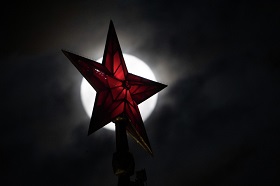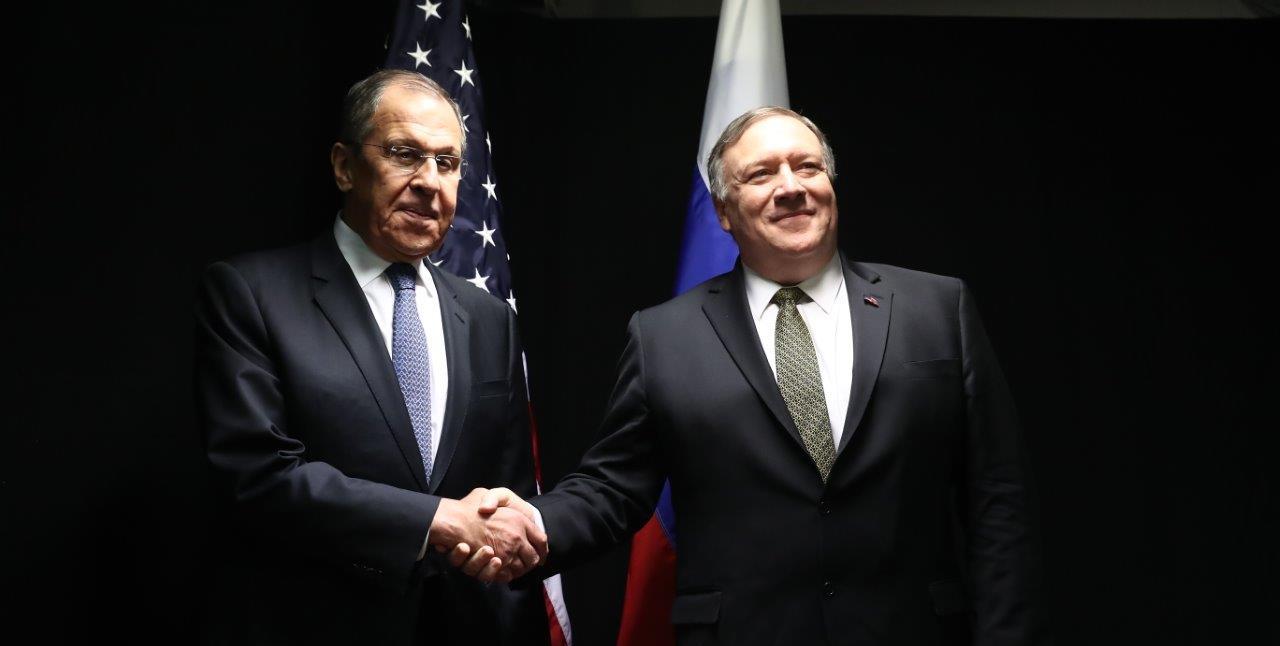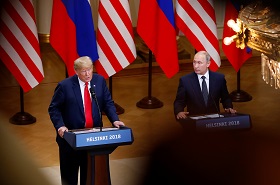When Robert Mueller’s Special Counsel dropped indictments against 13 Russian individuals and three companies for using social media “to interfere with the U.S. political system, including the 2016 presidential election,” the American mainstream media class treated this as groundbreaking, indisputable evidence that Russia had indeed meaningfully interfered in the 2016 election. Headline after headline from then on accused Russian trolls of everything from suppressing the African American vote, to promoting Green Party Candidate Jill Stein, to recruiting “assets,” and ultimately “sowing discord” in the heart of American democracy.
Now that the smoke has cleared after two-plus years of unrestrained sensationalism, it seems that the evidence was never really groundbreaking nor indisputable. This is evidenced by the fact that last week, a federal judge allowed the Department of Justice to drop charges on Concord Catering and Concord Management & Consulting, two Russian companies previously accused of being the well-oiled machines that funded, in the words of Jonathan Alter, an attack “as bad as Pearl Harbor.”
When Robert Mueller’s Special Counsel dropped indictments against 13 Russian individuals and three companies for using social media “to interfere with the U.S. political system, including the 2016 presidential election,” the American mainstream media class treated this as groundbreaking, indisputable evidence that Russia had indeed meaningfully interfered in the 2016 election. Headline after headline from then on accused Russian trolls of everything from suppressing the African American vote, to promoting Green Party Candidate Jill Stein, to recruiting “assets,” and ultimately “sowing discord” in the heart of American democracy.
Now that the smoke has cleared after two-plus years of unrestrained sensationalism, it seems that the evidence was never really groundbreaking nor indisputable. This is evidenced by the fact that last week, a federal judge allowed the Department of Justice to drop charges on Concord Catering and Concord Management & Consulting, two Russian companies previously accused of being the well-oiled machines that funded, in the words of Jonathan Alter, an attack “as bad as Pearl Harbor.”
Prosecutors described the rationale for this move to drop charges as being motivated by an interest to protect national security, but given the circumstances surrounding this case — it seems there are more than a few reasons to doubt this explanation. The fact is prosecutors had more than two years to come to this ad-hoc realization that this court case might threaten national security, that it would likely require them to provide evidence that would reveal their sources and methods. Why then did prosecutors spend two years of time and resources in pre-trial court proceedings just to abandon the litigation two weeks before the trial was set to start?
The more plausible answer is that the prosecution knew it was on route to losing at trial and that loss would come as a major embarrassment. Robert Mueller’s team never envisioned that this case would go to trial. It was obvious that the defendants would never step foot in the United States, and so the original indictments were never intended to deliver any striking form of justice. Instead, those indictments were meant to do two things: (1) justify the Special Counsel’s existence and (2) perpetuate the narrative of Russian interference by giving the media formal allegations that it could grab onto and treat as incontrovertible proof.
To this extent, the media played its role obediently. Personalities like Rachel Maddow of MSNBC, Michelle Goldberg of the New York Times, and hundreds of other gatekeepers abandoned the American principle of “innocent until proven guilty” and automatically accepted the allegations as a verdict.
Unfortunately for the prosecution, not all the defendants played the assigned roles given to them in the original indictment. Shortly after the charges were announced, Concord Management & Consulting flipped the script. The company hired Reed Smith LLP, a high-powered American law firm that would go on to challenge the prosecution tooth and nail over what it argued was a “make-believe crime” that had no basis in existing law. Prosecutors from that point on did everything they could to avoid the inevitable fate of forfeiting.
First, the prosecution team attempted to postpone the case and the pretrial discovery by claiming Concord had not been properly served with the indictment. This precarious strategy didn’t work. There was no need for the company to be properly served the indictment because serving an indictment is a procedure meant to draw a defendant into court. In this case, Concord was already in court and ready to call the government’s bluff.
Then after that, when it finally came time for discovery, Mueller’s team moved to block the defense from accessing the relevant evidence that the law requires prosecutors to disclose, citing that it would be harmful to national security. This move predictably failed because that’s not how justice works in the United States. The government cannot simply allege a crime and then bar defendants from accessing the evidence needed to mount a credible defense. The United States, to its credit, has a well-functioning court system that largely respects the rule of law and places a high burden of proof on prosecutors, which is why the prosecution repeatedly failed to stymie the slow march to an eventual trial date.
Ultimately, the prosecution’s case was dead on arrival because of their own dereliction of duty. The original indictment wasn’t really an indictment at all. It was a press release dressed like an indictment intended to manufacture consent surrounding Russia’s role in the 2016 election. The crime it alleged was based on a warped theory that the defendants had “defrauded the United States” by failing to disclose their Russian identities and affiliations to government agencies in charge of enforcing a registry of foreign agents and campaign-finance laws. The problem with that theory is that there are no federal election laws or statutes that would possibly apply to Concord. They did not operate in the United States and they did not directly purchase any advertisements, which means they weren’t legally obligated to report that information.
The prosecution knew they had a weak case — that they were grasping at straws by applying this fragile legal theory that was really just a fill-in for the fact that nothing the troll farm did was inherently illegal. There is no federal election law or regulation prohibiting any person or group of persons, whether American or foreign, from conveying political speech on social media. There is likewise no law requiring a person online to be truthful or accurate about their identity. Prosecutors were well aware of this. Had they expected a fight in court, they wouldn’t have pursued charges on these grounds. But given that they were challenged in court, they knew that if they litigated this case to its conclusion, they weren’t just poised to lose — they were on a highway to humiliation.
As the pre-trial saga unfolded, it became clear that the Justice Department had wildly overstated its case. For example, there was no underlying evidence that Concord or the Internet Research Agency (IRA) were ever directed by the Russian government. And although the Mueller Report described the IRA campaign as “sweeping and systematic,” it turns out the troll farm’s social media activity was “small, amateurish, and mostly unrelated to the 2016 election.” The IRA spent $46,000 on Facebook ads before the election, or to put it another way, five-1,000ths-of 1 percent of the $81 million spent on Facebook ads by the Clinton and Trump campaigns combined. Of that $46,000, only $3,102 was spent across the three states (Wisconsin, Michigan, and Pennsylvania) that swung Donald Trump the election. All the while, only 11% of that IRA content was related to the election.
Had a trial taken place, these facts about the alleged “Russian interference” would’ve come to light and the narrative that Russia meaningfully “sowed discord” or molded the outcome in the 2016 election would have fallen apart like a house of cards, shambolically and without a kernel of grace.
The most egregious aspect of this chapter in American history is the extent to which so much of the self-incurred pandemonium was nothing more than selective outrage that placed a singular focus on Russia, while willfully ignoring other, arguably more effectual examples of foreign interference and election meddling. If one is outraged over Russian interference, then logically, one should be outraged over Ukrainian interference or the influx of Israeli money into the American political system. The problem is the average American is either not outraged or not informed that these other examples exist, which speaks to a broader failure within the American media class to approach new stories with objectivity and journalistic integrity. That selective outrage is what led to this selective prosecution. New stories are no longer meant to inform. They’re meant to be weaponized unscrupulously against political rivals. The borderline neurosis that obsessed over Russian interference was never really driven by substance. It was always driven by a desire to tear down domestic opponents in the name of party politics.
This episode was no different.







